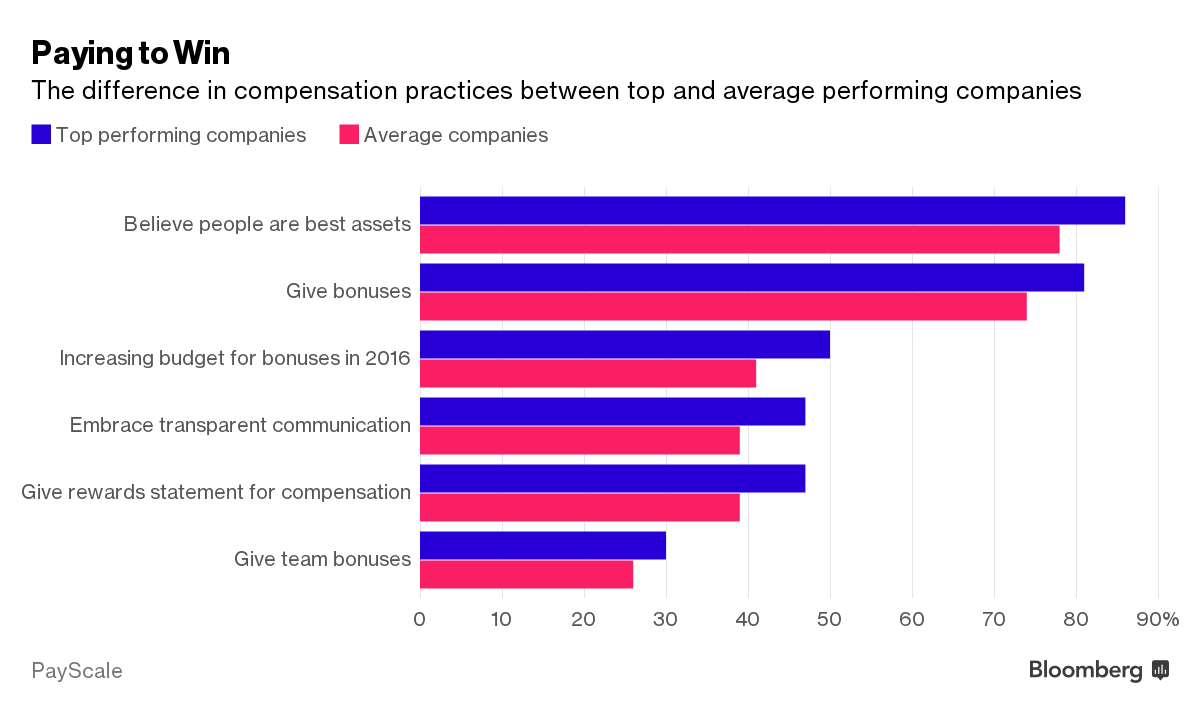(Bloomberg) - Unhappy with your salary? You’re not alone. Only 36 per cent of professionals surveyed by compensation website PayScale believe they are being paid fairly, according to data released in the fall. A second PayScale report, released on Monday (1 March), shows why that perception poses a problem for managers.
“When it comes to retaining good employees, pay practices are extremely important,” said Tim Low, senior vice president of marketing at PayScale. Companies surveyed for the website’s recent compensation report cited pay as the No. 1 reason employees chose to leave their jobs, followed by “personal issues”. PayScale surveyed 7,600 executives, business managers, and human resource practitioners in US companies for its report.
There are more reasons for companies to whip pay practices into shape than keeping employees happy, though. It seems that when companies get compensation right, they do better. Thirty per cent of the companies in the survey were what PayScale called “top performers,” defined as market leaders that exceeded 2015 revenue expectations. Across six categories related to pay transparency, top-performing companies were clearer about pay than were average companies.
Nearly half of all top performers reported that they embrace transparent communication around pay and give employees a total rewards statement for compensation, while only 39 per cent of companies deemed “average” by PayScale said the same. The top-performing companies did more than just talk about pay, said the report. They also rewarded employees based on their contribution to the bottom line. Eighty-one per cent of top performers said they give out bonuses, whereas only 74 per cent of average companies did.

Top performers are also more likely to increase their budget for bonuses in 2016 and give team bonuses than are average companies.
“Companies need to make a cultural shift in the way they approach compensation,” said Low, because paying out bonuses and giving raises are less effective in retaining workers than explaining a salary and laying out a plausible pathway for an employee to increase salary while at the company. A previous PayScale report, released in October, found that transparency around pay is an effective way to drive more employee engagement. A survey of 71,000 employees found that 81 per cent of employees would feel satisfied with getting paid less than market value for work if their manager took the time to explain the company’s reasoning behind the salary.
But many companies don’t have the right internal structures to support pay transparency, said Low. Only 35 per cent of companies surveyed said they train managers on how to engage with employees about compensation. Even fewer companies (17 per cent) report being “very confident” in their managers’ abilities to lead a discussion about pay.
“It’s an important issue for managers to consider,” said Low, “Because there is some emerging thought that says rewarding employee performance can having a higher impact on overall shareholder value.”
Related stories:
Singapore HR directors hit back at nationality-based benefits comments
How much should you be earning in 2016?
New Singapore salary projections released

